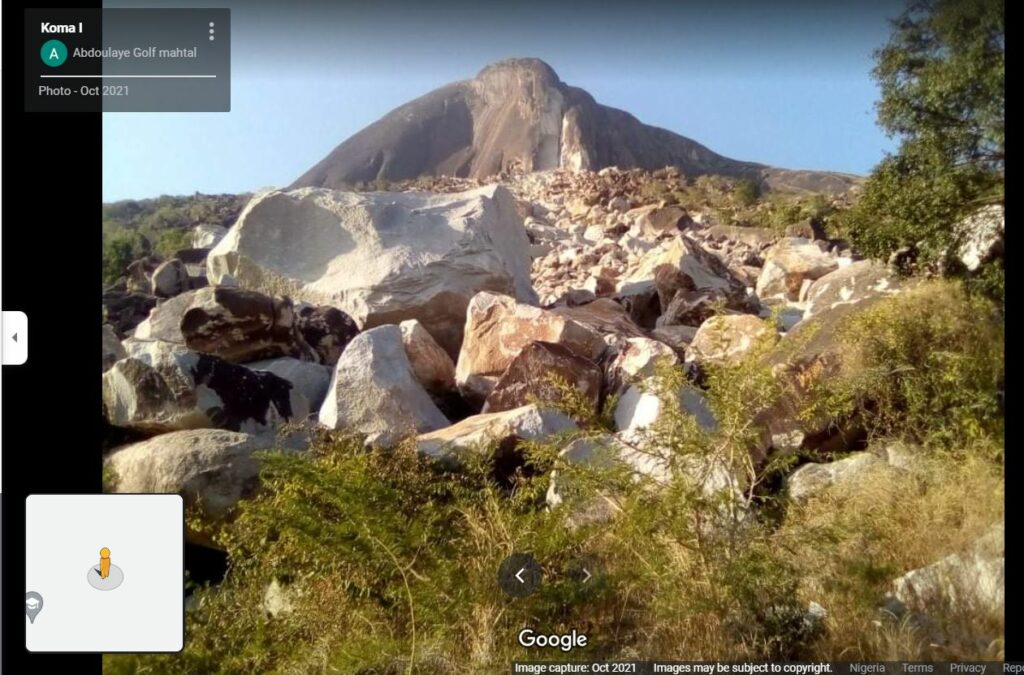The natives of Koma tribe inhabiting the hills of Adamawa State still gives regards to their unique ancient culture despite an ever-changing civilisation greeting the world. These people gladly wear fresh leaves, as seen in a documentary spotted by WikkiTimes.
In the short documentary produced by RFI Hausa, the distinct people of the Koma tribe were discovered comfortably taking shelter in huts erected on hills.
Parts of their ancient ways of life include long forgotten methods of agriculture, food preservation, and food processing, according to RFI Hausa.
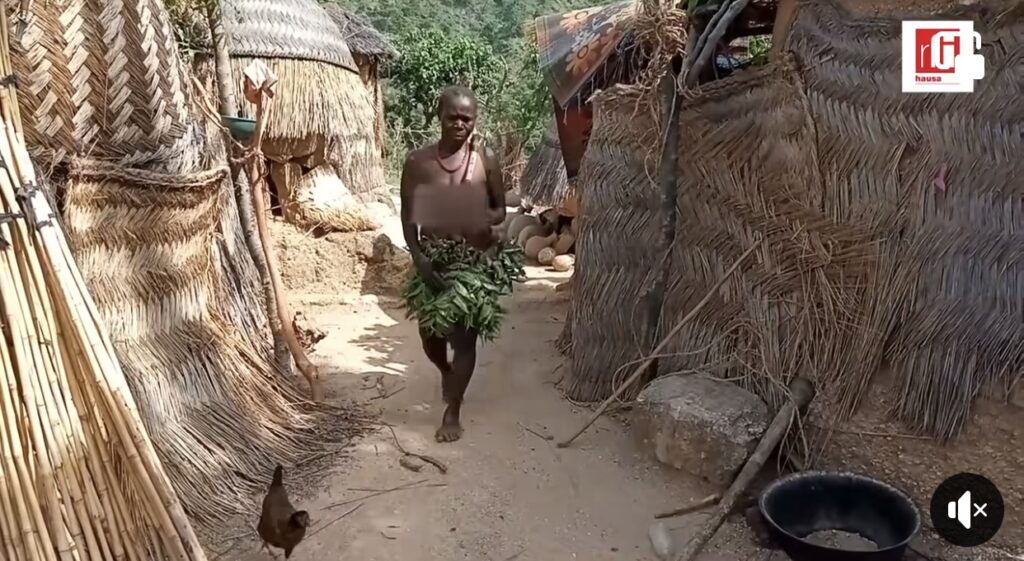
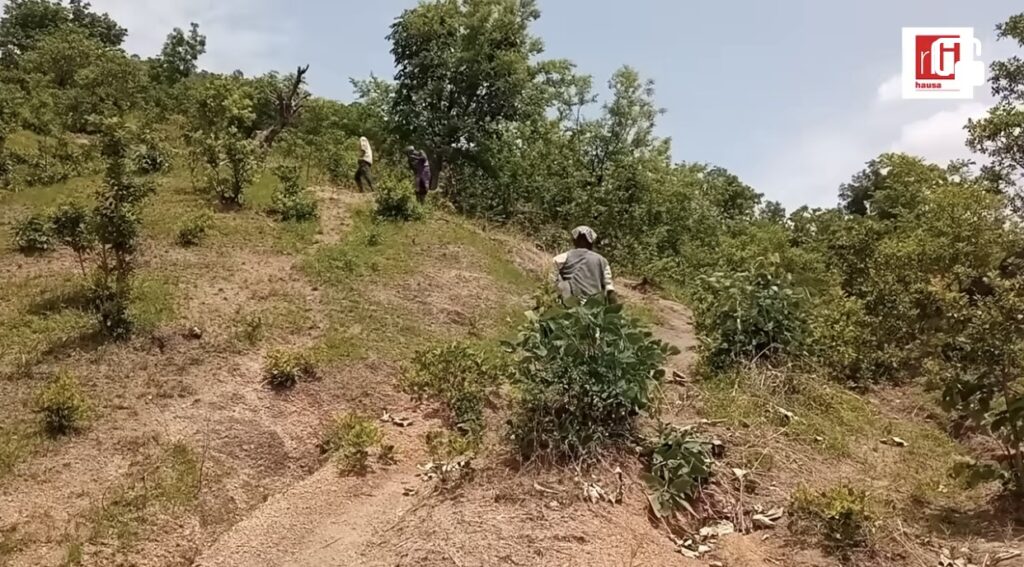
Koma natives, as seen in the video, farm on the hilly grounds. Glaringly, they store corn by hanging the corn curbs on trees and use stones to grind and process their food.
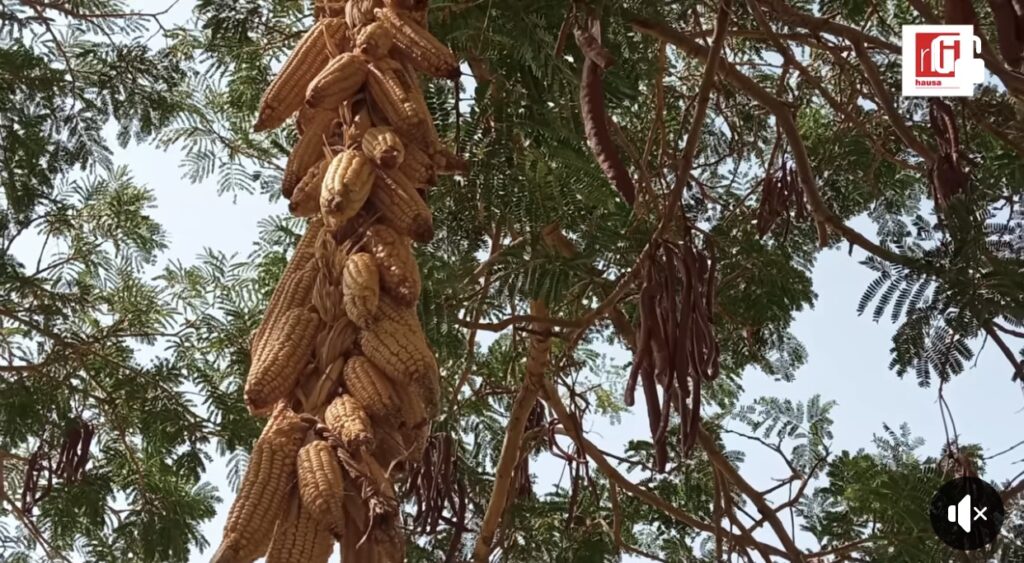
However, a few of their youths have started leaving their caves to see the outside world, coming back with fabric clothes. This, to their elders, remains foreign and unacceptable.
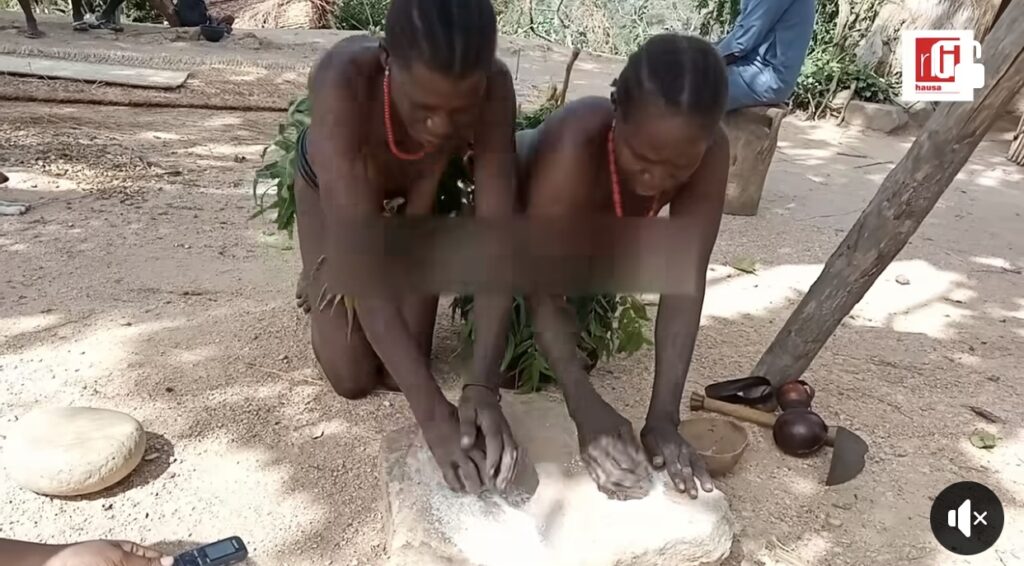
READ: Newly Constructed Health Center In Adamawa Suffers Zero Staff, Equipment
It took the RFI Hausa auteur two-and-a-half hours to climb the hill where he was confronted by a sacred entrance surrounded by assorted “fetish” objects.
The natives believe that the sacred entrance protects and defends them against evil forces and unwanted visitors.
Koma is situated in northern Adamawa, in the Atlantika Mountains, which share a border with southern Cameroun. They are spread through the south and southwest of these mountains, with many on the Cameroun side.
